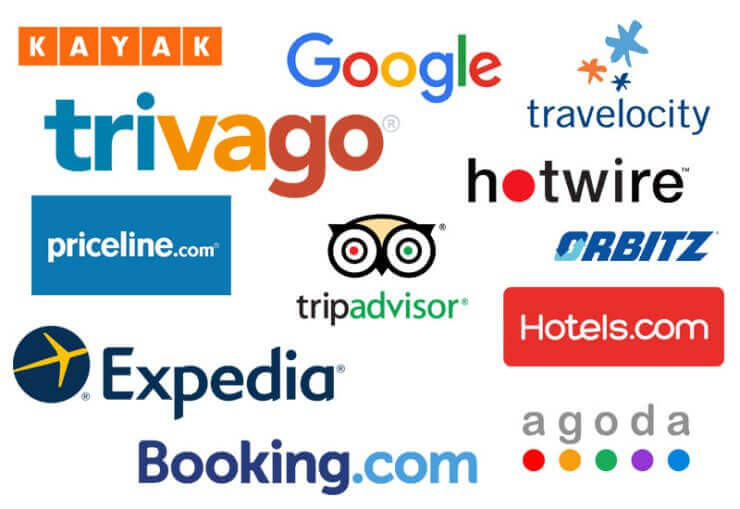
Chances are, if you’ve ever booked a holiday, you’ve used a metasearch engine! Google Hotel Ads, Trivago and TripAdvisor, for example, are all major examples of this type of site.
NB: This is an article from NetAffinity
They basically display real-time rates for different hotels, flights, or travel activities (depending on what it is you’re looking to book) all in one place.
For travellers, this is pretty handy! They get to see what the lowest price is for their chosen destination without having to scour through multiple websites.

The key thing to note about metasearch sites is they don’t actually sell flights, hotel stays, or activities. Instead, they link out to the sites that correlate with the prices displayed. Advanced technologies have made it easier than ever for sites to scrape prices from elsewhere and bring them all together in one place. As a result, we’ve seen a drastic increase in the number of travel-based metasearch engines in recent years.
We’re big advocates of using metasearch for independent hotels! But, like all forms of technology, it has its pros and cons.
Who Loses Out When It Comes to Metasearch Engines?
For years, hoteliers have fought tooth and nail with OTAs for the attention of their guests. OTAs made it easier to compare hotels in one destination, but we’re starting to see a shift now that metasearch engines are becoming more popular. Today, metasearch offers guests the chance to explicitly compare the price of booking direct with a hotel and booking it through an OTA – and, more often than not, it’s cheaper to book direct. This is a win-win for hoteliers who are looking to increase their direct bookings, and it’s why we’ve ensured our booking engine provides seamless connectivity to meta search platforms.
Slowly, we’re starting to see hotels recover lost ground from OTAs. If you look at it from this perspective, metasearch benefits independent hotels and is causing OTAs to lose out (or lower their prices).
How Metasearch Has Impacted Direct Bookings
Phocuswright’s report, Independent Lodging Properties and the Online Marketplace 2019, found that hotels today drive the majority of their business through online channels. Your goal as an independent hotel should be to increase your direct bookings in an attempt to reduce reliance on OTAs and eliminate the commission rates you’re required to pay them.
Metasearch has burst onto the scene as a new distribution channel, driving around 13% of bookings directly to properties! The report states that we can expect to see the metasearch landscape continue to grow and expand as hotels reinforce their efforts to boost direct bookings. With 90% of hotels wanting to increase their visibility in metasearch engines to get more direct bookings, we have no doubt that this will be the case.
The Problem With Metasearch Engines
Like we said, we’re advocates of metasearch – but every form of technology has its ups and downs!
Here’s the thing: metasearch engines can help hotels stand out and get more direct bookings by comparing prices in one place, but they can also provide unnecessary distractions for guests.
Consider this chain of events: say, for example, the price of a hotel was the same when booking direct on the hotel’s website and on an OTA. For whatever reason, a traveller might click through to the OTA website where they’re instantly served more ‘relevant’ hotels in their destination. Another hotel might be cheaper or seem like a better fit for them, so they book with that hotel. In this case, the original hotel would not only miss out on a direct booking, but they’d also miss out on an OTA booking too.
The Future of Metasearch and What It Means for Hotels
Metasearch has the strong and promising potential to level the playing field between OTAs and hotels. It allows smaller, independent hotels to pitch themselves against larger travel companies and compete for bookings – and, because they tend to offer lower prices for direct bookings, hotels are starting to come out on top!
Technology changes so rapidly in every field, so it’s understandable to question the life expectancy of metasearch – does it have what it takes to stick around for the long haul? Well, it’s safe to say, Google makes us think so!
When Google launched Google Hotel Ads, their sole purpose was to make metasearch more accessible to every single hotel. It takes power away from OTAs and puts it back into the hands of independent hotels. Although we’re still in the early stages, things are looking bright for the future! In order for hotels to succeed in the long-term and leverage the true potential of metasearch to get more direct bookings, it’s important to stop depending so much on third party booking sites and start adopting forward-thinking technology – like our booking engine for example, which, as we mentioned earlier, provides seamless connectivity to Google Hotel Ads! 😉
Shaking Up the Hotel Booking Industry
It’s safe to say that metasearch engines have shaken up the hotel booking industry! While OTAs still give travellers the chance to compare different hotels in different locations, metasearch allows them to compare the prices of individual hotels. And, because booking direct is often the cheapest option, independent hotels are starting to win the battle. To keep this winning streak going, hotels need to seriously consider investing in the right technology that’s up to date and enhances the book direct experience for their guests.
Our verdict? Metasearch is here to stay! And we’ll continue seeing more hotels become savvier to its benefits, and start leveraging it for their own success.






